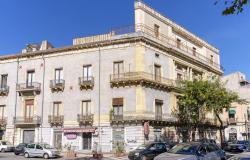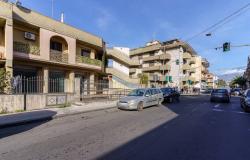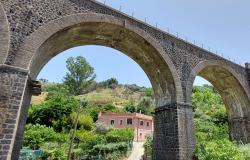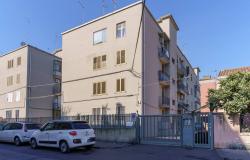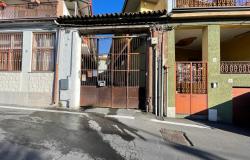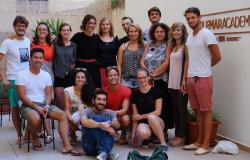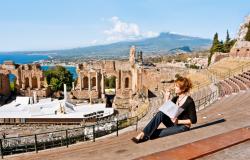 A top Sicilian politician was among five people arrested on Wednesday in a major anti-Mafia sweep here which prosecutors said had exposed close ties between local politicians and businessmen and the Mob.
A top Sicilian politician was among five people arrested on Wednesday in a major anti-Mafia sweep here which prosecutors said had exposed close ties between local politicians and businessmen and the Mob.
Bartolo Pellegrino, former deputy chief of Sicily's regional government and the leader of the political movement Nuova Sicilia (New Sicily), was detained on charges of Mafia association, corruption and extortion.
Francesco Nasca, the former head of the fiscal department of Trapani's state asset management agency, was also arrested, together with three businessmen, while an unspecified number of politicians and businessmen were placed under investigation.
Boss Francesco Pace, believed to be the head of the Trapani Mafia, was also served with an arrest warrant but is already in jail on other charges.
Prosecutors said they feared the crime ring was managed by the man believed to be the new head of Cosa Nostra, 45-year-old Matteo Messina Denaro.
Denaro, who is from Trapani and has been on the run since 1993, is suspected of having taken over the role of "boss-of-bosses" following last year's arrest of previous chief, Bernardo Provenzano.
Prosecutors said 73-year-old Pellegrino, who was allowed house arrest due to his age, acted as a go-between for bosses in the western coastal city and the Sicilian political world.
They said wiretap evidence showed he had "regular contact" with Pace, as well as ties with several lower level bosses including Francesco Orlando, who acted as the politician's assistant.
Pellegrino carried out administrative and political favours for the Mafia, helping it maintain control over local construction and urban planning projects, and also selected possible election candidates after consultations with the mob, prosecutors said.
They gave details of one alleged deal with Pace and two Trapani businessmen which involved the construction of 600 apartments in an agricultural area of Trapani.
Prosecutors said Pellegrino conspired to alter the classification of the land from a farming to a development zone and promoted the building project, for which he was promised 500 euros for each new apartment.
Pellegrino, who served as regional government councillor for land and environment from 2001-2003 and before that as budget and finance councillor, has been involved in several previous Mafia investigations.
Nasca, meanwhile, is accused of conspiring to return Mafia assets seized by the state to the Mob.
Prosecutors said the 61-year-old public official sought to obstruct administrative procedures involving confiscated Mafia properties and businesses.
They said that in once instance, Nasca drew up a report on a confiscated cement firm which vastly underestimated its market value, allowing it to be bought up cheaply by Mafia-linked Trapani businessman Vincenzo Mannina.
Mannina was among those arrested on Wednesday.
Police also seized business assets worth more than 10 million euros belonging to the businessman.
The probe is an offshoot of a previous Trapani Mafia investigation which led to Pace's arrest in November 2005.
ANTI-MAFIA ELECTION CODE GREENLIGHTED.
Palermo public prosecutor Roberto Scarpinato stressed at a press conference on Wednesday's operation that the Mafia depended on help from the political and business worlds.
"Without this support, the Mafia would already have been defeated," he said.
The same point was made by Rita Borsellino, the sister of Mob-slain anti-Mafia prosecutor Paolo Borsellino.
"These arrests, which involve a former deputy governor of Sicily, show once again the links between the Mafia and certain political spheres," said Rita Borsellino, who entered politics after her brother's 1992 murder and is now an MP with the centre-left governing coalition.
She made a bid in 2006 to become Sicily regional government chief but was defeated by Salvatore Cuffaro, a centrist politician re-elected despite being on trial for Mafia association.
Borsellino called on political parties on Wednesday to clean up their act and do more to purge members suspected of Mafia association from their ranks.
She said that the suspicion of such ties alone should make a politician ineligible for election.
Parliament's anti-Mafia commission took a step in this direction on Tuesday by approving a non-binding "ethical code" which it hopes will be adopted in upcoming Sicilian local elections.
The code would pressure parties not to put forward candidates who are on trial or awaiting trial for Mafia-linked crimes, drug dealing or corruption.
The measure was approved unanimously by the commission but must now be approved by the parties themselves.
Francesco Nitto Palma, a top member of opposition chief Silvio Berlusconi's Forza Italia party, expressed concern that the code could encourage "politically motivated" investigations.
"I hope magistrates will assess the evidence in a responsible way before taking any action against candidates... In any case, we will never be willing to drop those who are victims of judicial persecution," he said.
